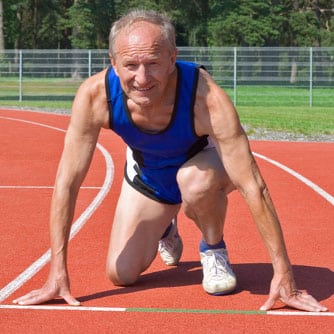In recent decades, the participation of elderly trained people in endurance events such as marathon running has dramatically increased. Previous studies suggest that the performance of master runners (those age 40 years and over) during marathon running has improved. Romuald Lepers, from the University of Burgundy (France), and colleagues analyzed the chronometric performances of competitors in the New York marathon in accordance with age and sex over the 1980-2009 period. They classified runners who successfully completed he race into 10 separate age categories (20-29; 30-39; then every 5 years from between 40 and 79). Whereas the average times achieved by the 10 best male and female athletes in age categories below 60-64 have not changed over the last 30 years, there was a sharp decrease in times for the senior age categories: for an average marathon time achieved of 3 hours and 50 minutes, men in the 65-69 age category improved by 8 minutes between 1980-1989 and 1990-1999, and 7 minutes between 1990-1999 and 2000-2009. Similarly, the average time achieved by women in age categories above 45-49 fell significantly. For example, the average performance for the 55 age category improved by 33 minutes between 1980 and 1990 (for an average race time of 4 hours and 20 minutes), and by 8 minutes between 1990 and 2000. Concluding that, over the last two decades, the performances of the best male marathon runners over 65 and the best female marathon runners over 45 have particularly improved, whereas their younger counterparts have remained stable, the study authors submit that: “These data suggest that male (65 years [and older]) and female (45 years [and older]) master runners have probably not yet reached their limits in marathon performance.”




